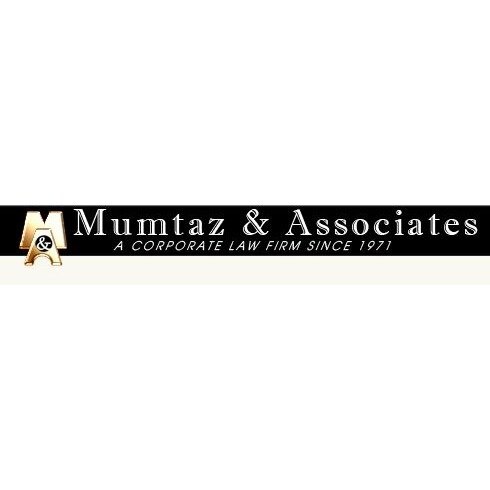Best Franchising Lawyers in Clifton
Share your needs with us, get contacted by law firms.
Free. Takes 2 min.
List of the best lawyers in Clifton, Pakistan
About Franchising Law in Clifton, Pakistan
Franchising in Clifton, Pakistan is a growing industry, offering numerous opportunities for both franchisors and franchisees. This business model allows individuals to operate their own businesses under the established brand and system of a franchisor. In Clifton, an upscale neighborhood in Karachi, the franchising sector is particularly thriving due to the area's economic vitality and diverse consumer base. Understanding the legal framework governing franchises is crucial for anyone looking to enter this market.
Why You May Need a Lawyer
There are several scenarios in which you might require legal assistance when dealing with franchising in Clifton. These include negotiating franchise agreements, understanding your obligations and rights under the contract, protecting intellectual property, compliance with local and federal regulations, and resolving disputes. Lawyers specializing in franchising can provide valuable guidance through the complexity of these legal issues, minimizing risks and helping you make informed decisions.
Local Laws Overview
The legal landscape for franchising in Clifton, and Pakistan in general, is shaped by a combination of federal and local regulations. Key laws include the Contract Act 1872, which covers the contractual obligations between franchisors and franchisees, and the Competition Act 2010, aimed at preventing anti-competitive practices. Intellectual property laws are also crucial, as they protect the franchisor's brand and proprietary systems. Local municipal regulations may impact the operation of the franchise, depending on the industry and the nature of the business.
Frequently Asked Questions
What is a franchise agreement?
A franchise agreement is a legal document outlining the rights and responsibilities of the franchisor and franchisee. It covers the terms of the franchise, including fees, territory, and operational guidelines.
Do I need to register a franchise in Pakistan?
Currently, there is no requirement for registering a franchise with a governmental body in Pakistan. However, compliance with intellectual property laws and fair trade practices is essential.
What fees are involved in purchasing a franchise?
Common fees include an initial franchise fee, ongoing royalties, marketing fees, and possibly training fees. It's essential to review these carefully in the franchise agreement.
How can a lawyer help with franchise disputes?
A lawyer can assist in mediating disputes, interpreting contractual obligations, and representing you in court if necessary. Early legal intervention often resolves issues without litigation.
Are there tax considerations in franchising?
Franchisees need to understand local tax regulations, including income tax, value-added tax (VAT), and any specific business taxes that might apply. Legal advice can help optimize tax responsibilities.
Is it possible to terminate a franchise agreement?
Termination clauses are outlined in the franchise agreement. Both franchisors and franchisees can terminate the contract under certain conditions, usually involving breach of agreement terms or mutual consent.
What is the role of intellectual property in franchising?
Intellectual property rights protect the franchise's brand, logos, and proprietary systems. Compliance with IP laws ensures franchisees can legally use these elements.
How can I ensure compliance with franchising laws?
Consulting a legal expert can help you understand and comply with applicable laws, including industry-specific regulations and local ordinances.
What should I consider before buying a franchise?
Consider factors such as brand reputation, cost, profitability, contractual terms, and the level of support provided by the franchisor.
Can I change the terms of a franchise agreement?
Changes can be made to a franchise agreement if both parties consent. A lawyer can help negotiate and draft amendments to the contract.
Additional Resources
For further assistance, consider reaching out to the following:
- The Pakistan Franchise Association provides support and resources for franchisors and franchisees.
- The Small and Medium Enterprises Development Authority (SMEDA) offers guidance and assistance on business operations and entrepreneurship.
- Consult the Karachi Chamber of Commerce & Industry for local business regulations and support.
Next Steps
If you are considering franchising in Clifton and need legal assistance, start by consulting with a lawyer who specializes in franchising law. They can help you understand the legal landscape, review agreements, and ensure compliance with local regulations. It's advisable to have a clear understanding of your rights and obligations before committing to a franchise, ensuring a successful business venture.
Lawzana helps you find the best lawyers and law firms in Clifton through a curated and pre-screened list of qualified legal professionals. Our platform offers rankings and detailed profiles of attorneys and law firms, allowing you to compare based on practice areas, including Franchising, experience, and client feedback.
Each profile includes a description of the firm's areas of practice, client reviews, team members and partners, year of establishment, spoken languages, office locations, contact information, social media presence, and any published articles or resources. Most firms on our platform speak English and are experienced in both local and international legal matters.
Get a quote from top-rated law firms in Clifton, Pakistan — quickly, securely, and without unnecessary hassle.
Disclaimer:
The information provided on this page is for general informational purposes only and does not constitute legal advice. While we strive to ensure the accuracy and relevance of the content, legal information may change over time, and interpretations of the law can vary. You should always consult with a qualified legal professional for advice specific to your situation.
We disclaim all liability for actions taken or not taken based on the content of this page. If you believe any information is incorrect or outdated, please contact us, and we will review and update it where appropriate.








